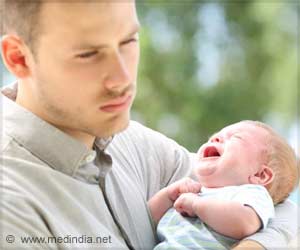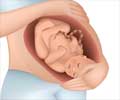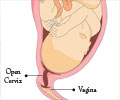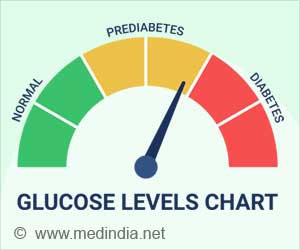Older fathers face higher miscarriage risks due to genetic mutations, DNA fragmentation, and decreased sperm quality.
- Advanced paternal age significantly increases the risk of miscarriage due to genetic mutations and sperm quality decline
- Maintaining a healthy lifestyle, including a balanced diet and avoiding harmful substances, can help mitigate some of the risks
- Regular consultations with healthcare providers are crucial for personalized advice and managing age-related reproductive risks
Miscarriage Significantly Associated With Increasing Paternal Age
Go to source)."
TOP INSIGHT
Older fathers face higher miscarriage risks due to genetic mutations and declining sperm quality. Healthy lifestyle changes and regular doctor visits can help mitigate these risks. #fatherhood #health #medindia
Why Does the Risk of Miscarriage Increase with an Increase in Paternal Age?
Dr. Kranthi Shilpa, a consultant gynecologist at CARE Hospitals in Banjara Hills, Hyderabad, points out that several aging-related factors contribute to this heightened risk.Genetic Mutations:
As men age, the likelihood of genetic mutations in their sperm increases. These mutations can result in chromosomal abnormalities in the embryo, raising the risk of miscarriage.DNA Fragmentation:
Aging can also lead to more DNA fragmentation in sperm, which compromises the genetic integrity of the embryo and increases the miscarriage risk.Decreased Sperm Quality:
With age, sperm quality declines, including reduced motility and abnormal morphology, which can negatively affect embryo development and increase miscarriage risk.Dr. Swati Rai, a senior consultant and laparoscopic surgeon, obstetrician, and gynecologist at Aaradhya Neuro and Gynae Clinic, adds, "Current research has proven that advanced paternal age beyond 40 years is significantly associated with increased risk of spontaneous miscarriages, even after adjusting for maternal age." She notes that fathers aged 40-44 years have a 23% risk of spontaneous miscarriages, which increases to 43% for those older than 45 years.
Moreover, Dr. Rai highlights that advanced paternal age is also linked to conditions such as autism spectrum disorder and schizophrenia.
Mitigating the Risks of Abortion with Lifestyle and Dietary Changes
While dietary and lifestyle changes may not eliminate the increased risk linked to advanced paternal age, they can help optimize sperm quality and reduce the risk to some extent, according to Dr. Shilpa. Here are some recommendations:Maintain a Healthy Weight:
Obesity is associated with decreased sperm quality and increased DNA damage in sperm. Thus, maintaining a healthy weight is crucial.Nutritious Diet:
Consuming a diet rich in fruits, vegetables, whole grains, lean proteins, and healthy fats can provide essential nutrients that support sperm health. Antioxidants such as vitamin C, vitamin E, and selenium may help reduce DNA damage in sperm.Limit Alcohol and Caffeine:
Dr. Shilpa advises limiting excessive alcohol consumption and high caffeine intake as they are linked to decreased sperm quality and fertility issues.Avoid Smoking and Drugs:
Smoking and the use of recreational drugs can negatively affect sperm quality and increase the risk of genetic abnormalities in sperm, thereby raising the risk of miscarriage.Manage Stress:
Chronic stress can adversely impact reproductive health. Finding healthy ways to manage stress, such as through exercise, meditation, or therapy, may improve sperm health.Role of Healthcare Providers in Managing Age-Related Risks of Miscarriage
It is important to remember that age-related factors cannot be eliminated. Therefore, consulting with a healthcare provider can offer personalized recommendations based on individual circumstances. Regular check-ups and open communication with medical professionals can provide the necessary guidance to manage the risks associated with late fatherhood.While the risk of miscarriages increases with paternal age, understanding the contributing factors and taking proactive steps can help manage this risk. By maintaining a healthy lifestyle, making informed dietary choices, and avoiding harmful substances, older fathers can improve their sperm quality and reduce the chances of adverse pregnancy outcomes. Regular consultations with healthcare providers ensure that prospective fathers receive tailored advice and support, promoting better reproductive health and successful pregnancies.
Reference:
- Miscarriage Significantly Associated With Increasing Paternal Age - (https://www.sciencedaily.com/releases/2006/08/060803171027.htm)
Source-Medindia
 MEDINDIA
MEDINDIA





 Email
Email










